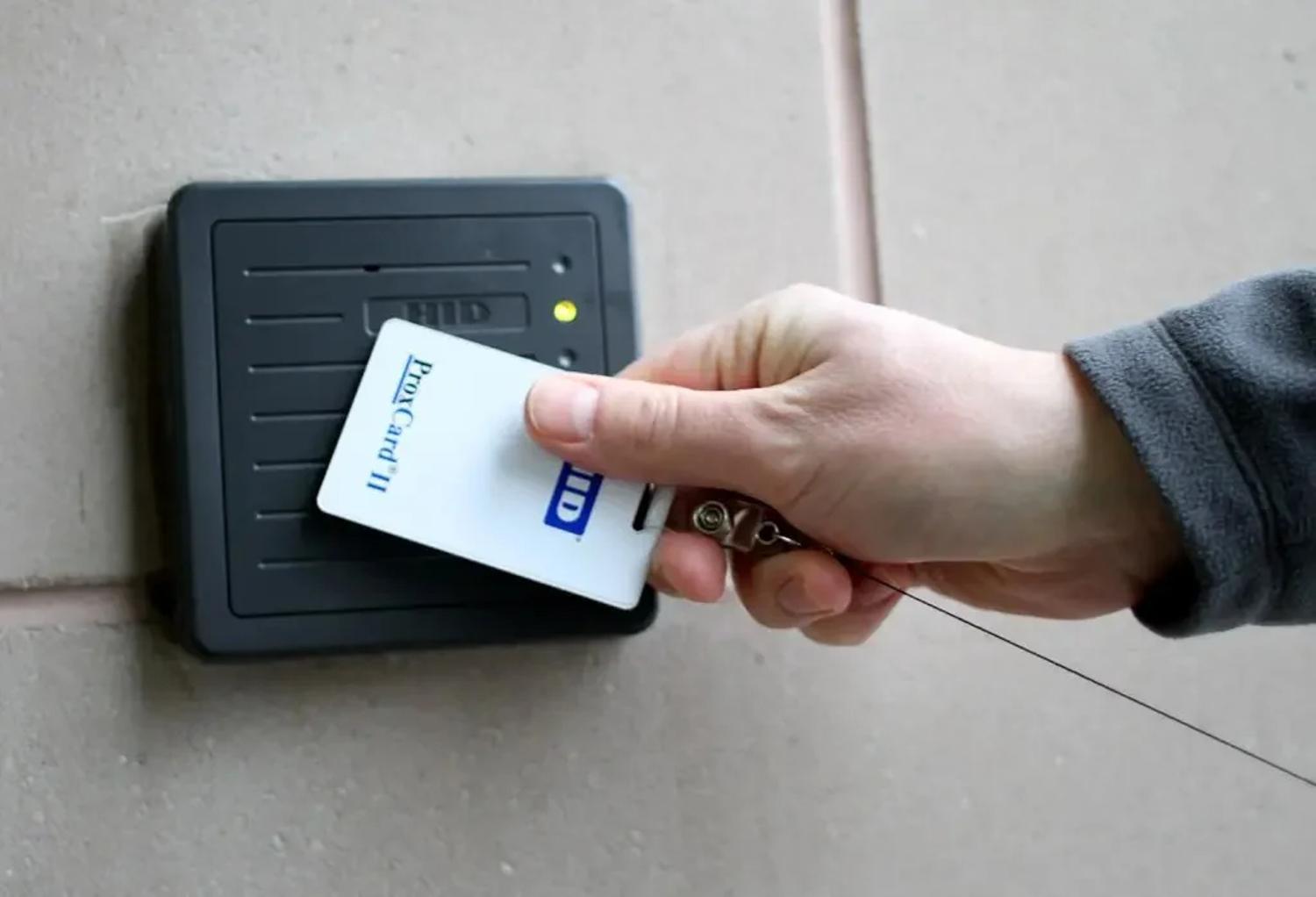After the COVID-19 pandemic lockdown, companies around the country and the world had to figure out how they wanted to proceed. Some allowed employees to continue working remotely, others went straight back to the office, and still, some found some kind of in-between with a hybrid work model.
Giant tech company Dell allowed many of its employees to opt for a hybrid work model, but it hasn’t exactly been smooth sailing. Finally, Dell announced that it would now be tracking its employees’ in-office attendance to ensure these hybrid workers are actually coming into the office, but the employees are less than thrilled by the new system.
Dell’s Attendance Policy Went Into Effect May 6, 2024

Dell announced via a memo that they would be tracking employee attendance, effective May 6, 2024. The memo, which was seen by Business Insider, explained the new system.
It said, “As the next step in implementing our Hybrid Work Policy, we will track onsite presence using badge swipes for hybrid-designated team members.” Essentially, every employee who opted for a hybrid work model will have to swipe into work when they spend a day in the office.
Dell Plans to Track and Display Hybrid Workers’ Attendance Online

In addition to tracking hybrid employees’ in-office days, Dell announced that they will collect, organize and release the information for all employees to see.
The memo explained, “Beginning Monday, May 13, you will be able to see your weekly site visit data. At the end of the quarter, site visits will be cumulated and reflected using category ranges.”
Each Dell Employee Will Be Assigned a Colored Flag

Each employee will be awarded a colored flag: Blue for “consistent on-site presence,” green flags represent “regular onsite presence,” yellow will mean “some onsite presence” and red flags are for those with “limited onsite presence.”
However, these flags are more than just an assessment tool. Dell says they will directly affect an employee’s work life within the company.
Dell’s Colored Flags Will Affect the Employees’ Paycheck

Dell noted that if a hybrid employee does not regularly meet the three-day-a-week minimum and is assigned a yellow or red flag, it will negatively affect their compensation.
Additionally, the tech company explained that the flags will be taken into consideration by upper management during performance reviews and will even determine whether or not a person is eligible for a promotion.
Dell Employees Are Incredibly Disappointed by the New Attendance System

Dell workers were instructed not to speak to the press regarding the new attendance policy. However, several did anyway, just asking to remain anonymous. The general consensus among all ten of the Dell employees who talked to Business Insider was that they were not happy with the new system.
One Dell employee said, “Dell is not the place it used to be where employees were respected and valued. There are so many people that are demoralized and will be hurt by this policy.”
One Dell Employee Called Dell a ‘Dictatorship’

Another Dell employee said that, in their opinion, “Dell is in a state of dictatorship.” While yet another said that Dell employees are being “tracked like kindergarteners and scared that their names might end up on some list.”
It seems that the two major complaints are that employees have far less flexibility with their work schedules than they did before and that employees now feel a severe lack of respect and trust from their employers.
There Are Several Flaws in Dell’s Attendance Tracking Policy

However, employees have issues with more than just the policy itself. They also report several flaws within the system that make it annoying and ineffectual. First, if an employee is on a work trip, has taken their paid time off or even forgets their badge at home, they are marked absent.
That means that the manager is responsible for monitoring every employee on their team’s personal schedule and manually entering their whereabouts into the system if they have a valid reason to be out of the office that day.
Punishment for Lack of Attendance Lies With the Managers

Additionally, it falls on the managers to decide the punishment or negative side effects they plan to administer to those employees with yellow or red flags.
One Dell employee said that their manager believes the system is simply annoying and adds more work to his already busy schedule. The employee said, “[My manager] personally believes the new policy is ridiculous. He has better things to do than count people’s days in the office.”
The Leniency of Managers Will Affect Each Employee Differently

As well as being frustrating and time consuming for the managers, this highly unorganized system will also mean that some employees will be penalized more than others, depending on who their manager is.
Although the hope is that a manager would treat their entire team equally, the truth is that personal bias often enters the workplace. So, a manager may even punish one hybrid employee who prefers to work from home much harsher than another with whom they don’t personally get along.
Employees Are Turning Against Dell

While Dell’s attendance policy is certainly in the hot seat, it wasn’t the only controversial announcement in the memo. Dell also proclaimed that any employee who opts out of being a hybrid-model employee to work from home full time will no longer be eligible for any promotion within the company.
These changes and mandates are clearly not going over well. In fact, one employee said that they are “really making people turn on Dell as an employer.”
Will Dell Cancel the New Attendance System?

After a big, corporate-wide decision is made, there is usually some debate as to its pros and cons. But in the case of Dell’s attendance policy, almost every employee, including those in upper management, seems to be against the corporation’s decision.
With such substantial backlash, many wonder if Dell will backtrack and cancel the attendance tracking system. But for now, Dell employees will simply have to wait and see what happens next, that is, if they haven’t decided to apply somewhere else that offers more flexibility.
